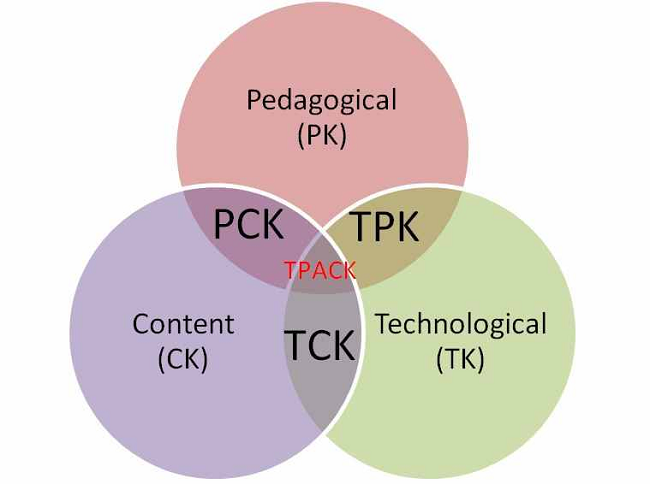Now before I share it, I first want to define what I believe a successful mobile learning project is. I’ve got a simple rule; that mobile learning projects should have a positive impact on a measurable outcome within school. If it doesn’t, then realistically it’s a waste of not only money, but also time (which is a much more important commodity for educators). I don’t believe in terms such as “students are more engaged” or “staff really love it.” I hear them all the time from SLT members, yet neither are defined outcomes, they’re just opinions. For the investment required, mobile learning projects must improve attainment. That is my definition of a successful project.
"Millions have been invested into edtech over the past two decades, yet barely any impact has registered."
So what is the answer to predicting who will succeed and who will not? At the most simplistic level, success is won or lost before the project even starts. The hinge factor is whether the project leader is a naturally curious individual or not. Let me explain why.
I’ve believed schools have been asking the wrong questions when it comes to technology for a long time. As a nation, millions have been invested into school technology over the past two decades, yet barely any impact on student attainment has registered. In any other industry the continued investment in a process without evidence would be questioned, but in education the adoption of technology only seems to be gathering speed. Given the fact that significant investment in technology has transformed many other industries draws me to the conclusion that it’s not the technology that is the problem, but the deployment of it. I believe this can be boiled down to a very simplistic answer. Too many schools focus on asking ‘what’ instead of asking ‘how?’ Let’s imagine a project leader asking the following questions:
“What apps should I use to teach maths?”
“What can I do with the iPad with my year 7s?”
“What should I use to teach children about Ancient Rome?”
Each is a request for information, but the questioning won’t lead to a deeper understanding of how to arrive at the answer. There’s no focus on the process and pedagogy that underpins successful technology use in the classroom. Contrast this with the below examples:
“How can I use the iPad to teach maths?”
“How can I use the iPad with my year 7s?”
“How can I teach Ancient Rome with the iPad?”
It may look like I’m arguing semantics (by substituting what with how), but the result of each questioning process will produce a very different answer. One engages metacognition while the other does not. Metacognition is the process of being consciously aware of your own learning, and having that ability can be a huge asset to an educator. By focusing your questions on the ‘what,’ the answers you receive are context dependant. Knowing what apps to teach maths with provide no help when it comes to teaching geography. Questions that focus around the ‘how’ will help deepen your understanding of the pedagogy. Understanding how to teach maths with an iPad (how it embeds into the curriculum) will provide you with soft skills that can be transferred to teaching other subjects.
So what does this have to do with predicting the success of mobile learning projects? I’ve found successful projects always have a leader who possesses a metacognitive mindset. Demographics, finances and environmental factors range wildly, yet all successful mobile learning projects are led by an individual who constantly asks “how?” Questioning “how” will lead the school to do things differently, better or more efficiently, and each of those will drive learning forward.
Does this mean you’re doomed to fail before you begin because you’re not naturally curious? Certainly not, because metacognition is a skill anyone can acquire. Developing an awareness of your own practice with mobile technology will help you improve and grow as a digital educator, and one of the best ways to do that is to work to a framework or model. TPACK is the perfect framework in this case, and all you need to do is master the three components:
- Technological: Ability to use the device.
- Pedagogical: The understanding of how to embed the device into the curriculum.
- Content: Having tasks, exercises and content available to teach with (this is not apps).

Without engaging all three, it is near impossible to achieve a positive impact. In my experience, the most underdeveloped component from the three is pedagogical knowledge. I’ve highlighted this to many a school over the years, yet a typical response is that there’s no time or it’s not a top priority. However, these schools still continue to invest tens of thousands of pounds into technology. Only those with a metacognitive mindset will explore the pedagogical aspects, and join the small group of those who achieve success with mobile devices.
To bring this to a conclusion, you’re left with a choice. Do you master the device or master the pedagogy? Are you going to ask ‘what’ or are you going to ask ‘how?’ It’s key to understand that technology is not a magic bullet, but only a tool for learning. It takes time to master before you can unlock its potential. Lack of competence and confidence are the most common barriers to good technology usage for teachers everywhere, yet this has been known since 2000. Dawes’ study highlighted how a lack of either will undermine, and/or reduce the effectiveness of teaching. 15 years on and lack of competency and confidence are now the barriers for many a teacher using iPad. This problem will always persist while technology pedagogy is prioritised so lowly. Mastering the pedagogy is an investment of your time, but one that will equip you with the skills and understanding to adapt to the classroom technologies that are just over the horizon. Only by mastering pedagogy can you truly master the technology, and that is the key to a successful mobile learning project.
Do you take a similar approach to 1:1 learning? Let us know in the comments.


















